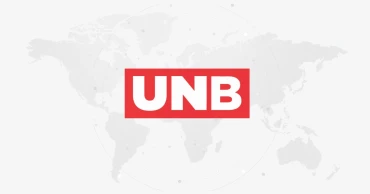Drik
4th edition of Bangladesh Press Photo Contest launched at Drik
The Bangladesh Press Photo Contest 2025 has begun at Drik for the fourth consecutive time to celebrate the professionalism, skill, and courage of the country's photojournalists.
The names of seven winners were announced at the inaugural ceremony held on Saturday evening,m at Drikpath Bhaban in Panthapath, Dhaka.
The contest began on February 9 with an open call for submissions, and a total of 252 photojournalists submitted 1,310 photographs taken over the past year, covering political, economic, social, cultural, wildlife, and documentary themes.
From these, 31 photographs were selected for the exhibition, which is now open to the public.
The Picture of the Year 2024 award was presented to Ashraful Alom, former photojournalist of Prothom Alo, who received a cash prize of Tk 1,00,000.
Six other photographers were awarded under three categories.
In the Politics category, Kazi Salahuddin Razu of Bonik Barta was named winner, and Dr Kumar Bishwajit of Reviewthatplace.com received an Honourable Mention.
United News of Bangladesh (UNB) Photojournalist Tahiyat Nazifa Noor's one of the nominated photographs is being exhibited in this exhibition under this particular category.
In the Public Interest Journalism category, M Yousuf Tushar of Business Bangladesh was named winner, while Md Abu Noman Omit of limerickbd.comreceived an Honourable Mention.
In the Arts, Culture and Sports category, Jahir Ahammed Shakil of Image Ghor Photographic Society was declared winner, and Rashed Shumon of The Daily Star received an Honourable Mention.
Each category winner received Tk 50,000 and Honourable Mentions received Tk 10,000, along with crests and certificates.
10 months ago
Drik hosts frank conversation about freedom of expression, media in Bangladesh
Shedding the spotlight on freedom of expression and media in Bangladesh, Drik Picture Library organised a special talk session on Wednesday in the capital's Panthapath.
Historian, researcher and UNB and Dhaka Courier Editor-at-Large Afsan Chowdhury joined this conversation alongside globally renowned photojournalist and Drik Managing Director Shahidul Alam at 5:30pm at Drikpath Bhaban.
The conversation addressed major roadblocks to freedom of media in Bangladesh through the narratives of two of the eminent media personalities in the country.
"In Bangladesh, there isn't any freedom of speech. The ideology that we are independent is a fundamental misconception in this country. We do not have control over the circumstances we are in," Shahidul said.
About the Digital Security Act (DSA), he said, "We objected to the rules included in the Digital Security Act, as it was the replacement of the ICT Act 2006's abolished provisions. The law minister who oversaw the creation of this act is no longer in office."
"The then-law minister stated about this bill that if a lawsuit was brought against a journalist under this statute, he would defend the journalist himself. No one doesn't even recall that clause anymore, as he is no longer a minister."
Read more: Media pursues diplomats to speak on Bangladesh’s internal affairs: Momen
"People mistakenly believe that Bangladesh has free media, but that is inaccurate," Afsan said. "The structural limitations of Bangladesh restrict media freedom."
"The government implements the DSA nowadays mostly because of Facebook, the largest social media platform in the world. For the administration, such a sizable social media platform is extremely concerning."
"Facebook is the mass media now, and also the most popular platform where everyone is a journalist. The majority of media outlets in Bangladesh were founded by their owners because they needed to make money. That demand must be dropped to obtain and practice the freedom of media, but no one wants to take that chance."
"So if the journalists want to practice journalism on their own, they must do it alone because the organisations cannot assist them. We now need to consider how to properly express our opinions on social media, while ensuring freedom of speech at the same time," Afsan said.
Read more: Responsible, credible media hold all parties to account: Gwyn Lewis
3 years ago



